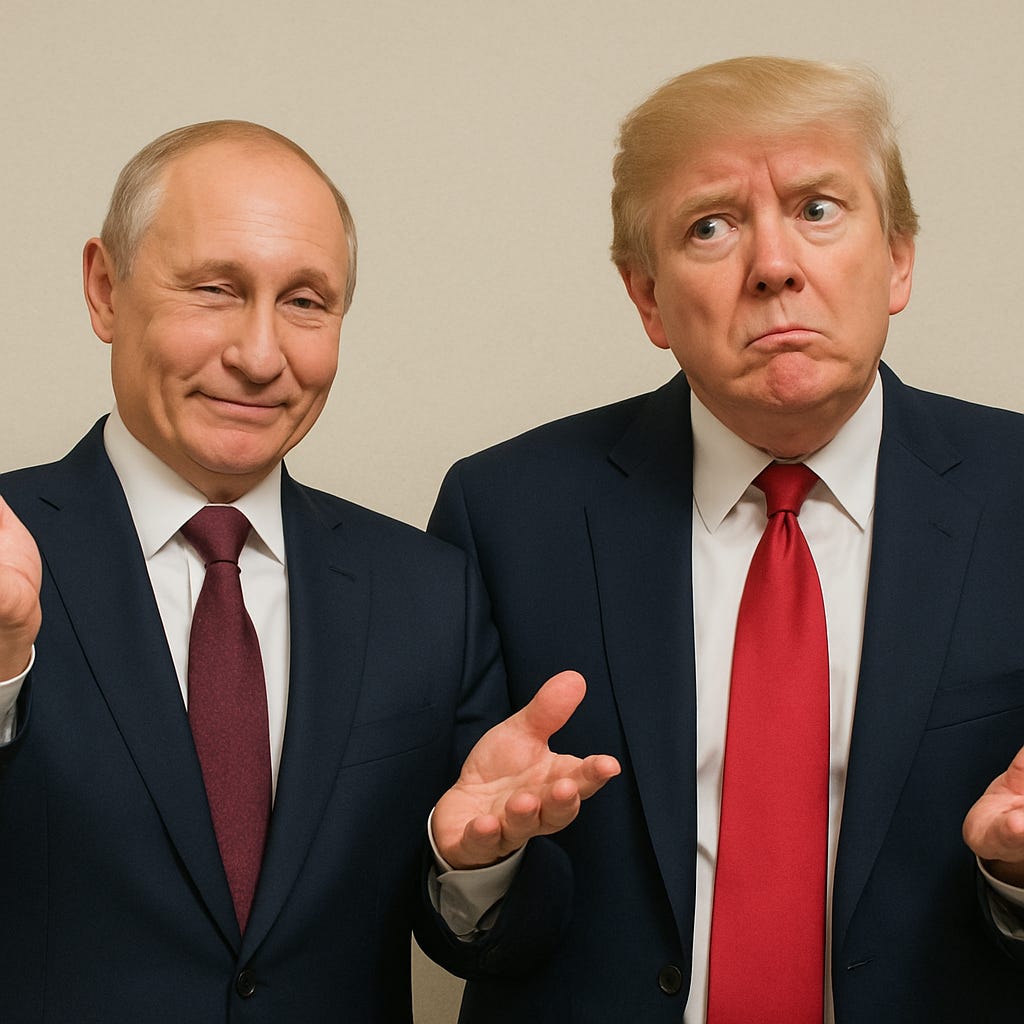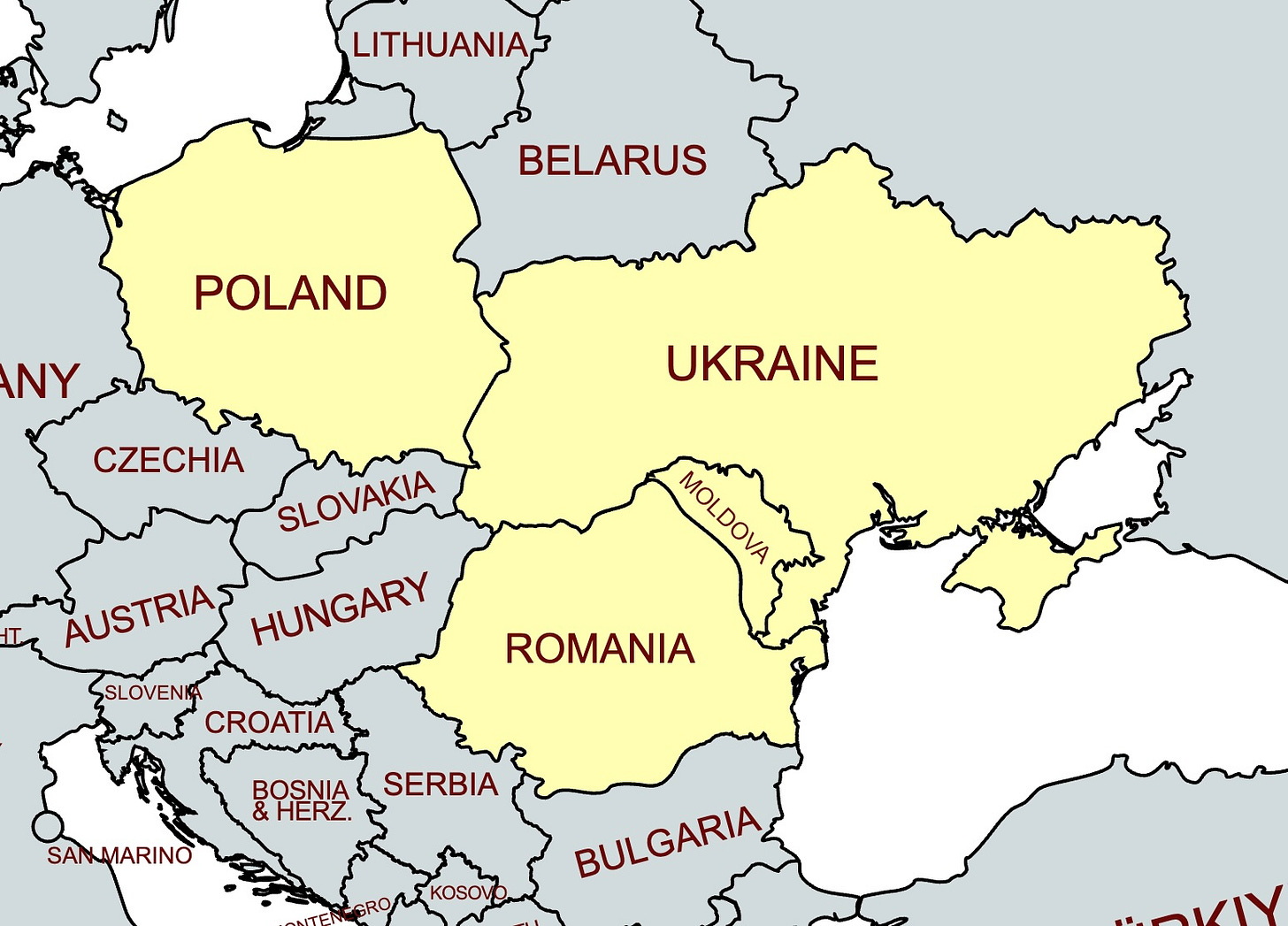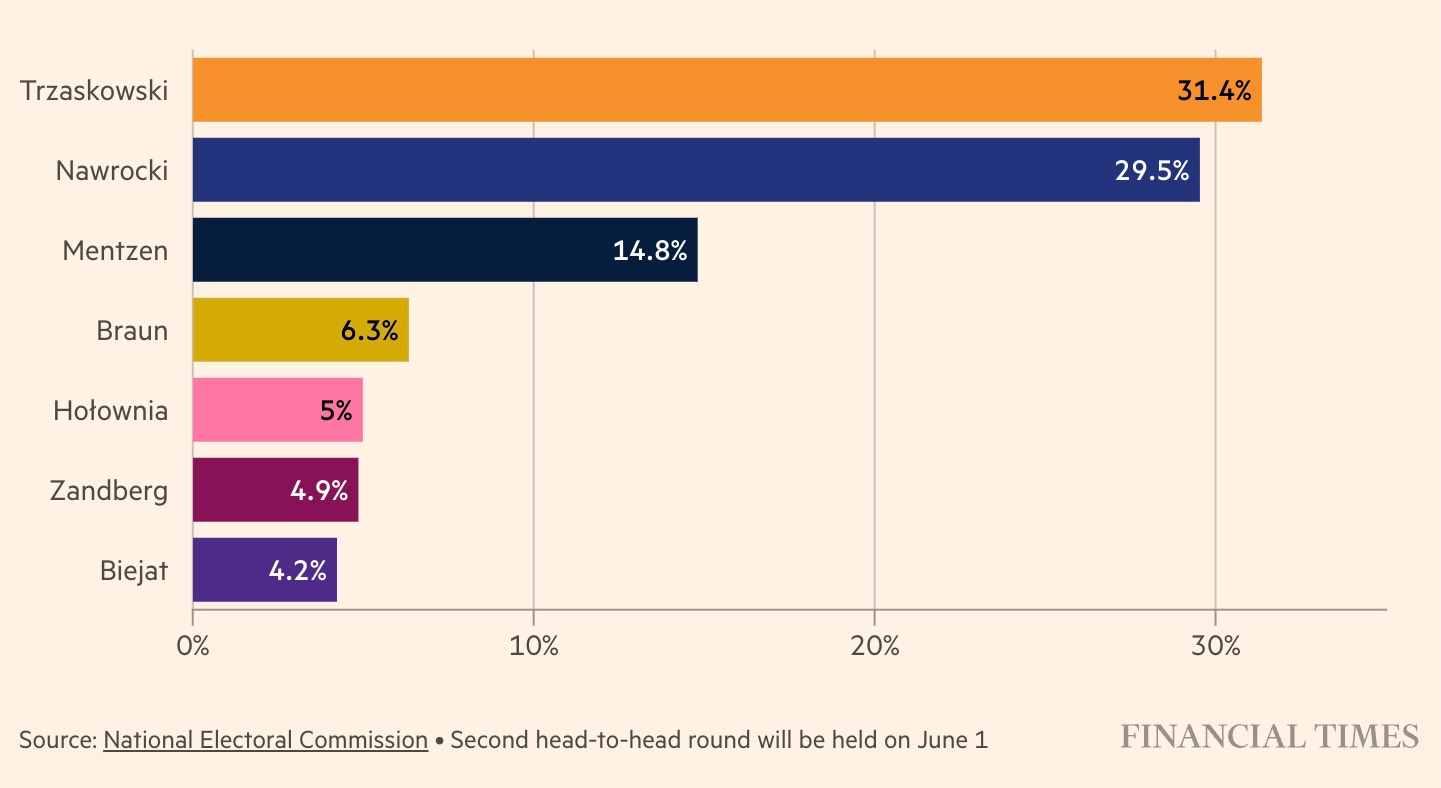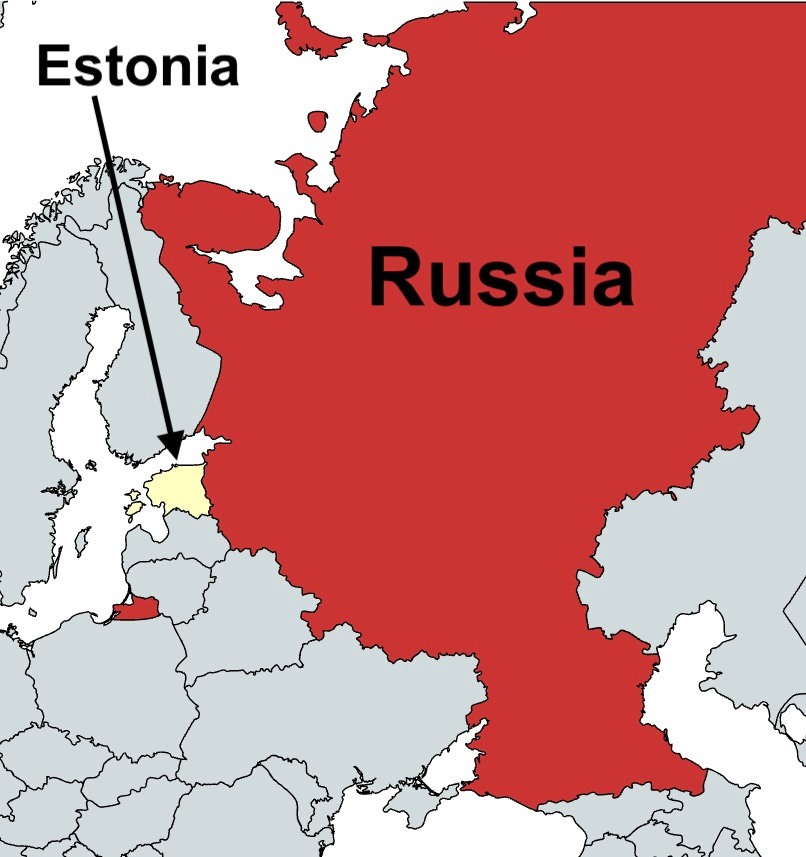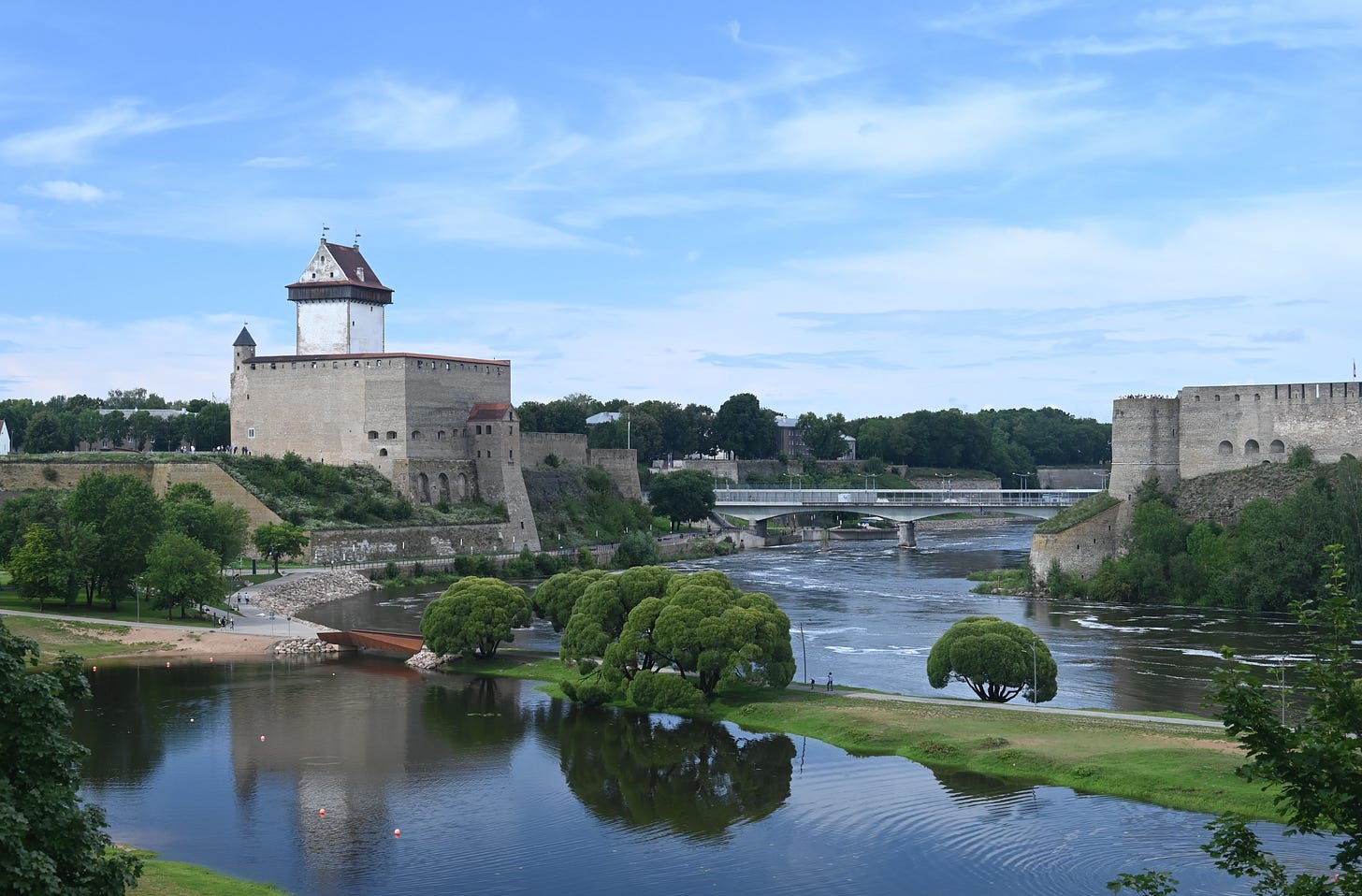Welcome. Common Sense and Whiskey a short, sharp, once a week look at the world out there.
After reading today’s column you’ll be briefed on what Vladimir Putin says about Ukraine and what he really means, the soon-to-be-shrinking American troop presence in Europe, two important elections last week in Europe and the saga of Donald and Steve.
If you find any insights here, please consider subscribing to Common Sense and Whiskey. It would be great if you could contribute, but there are no paywalls here. You can always read the whole thing.
Let me know what you think.
Here we go:
WHAT HE SAYS AND WHAT HE REALLY MEANS: Vladimir Putin is humiliating Donald Trump. Everyone but the MAGA crowd and, remarkably, Trump himself can see it. Putin has withstood the American president’s self-professed ability to stop the war in 24 hours, his every subsequent admonition, declaration and entreaty, his “Vladimir Stop!” command and all the other moves Trump has made in his 123 days in office.
Donald Trump would appear to be so bent on a Trump Tower Moscow, maybe an Aman Resorts managed Trump St. Petersburg resort, and trade deals, trade deals, trade deals that nothing further will happen in Ukraine until Trump, holding America’s cards, folds before Vladimir Putin’s will. So we should pause here to consider the difference between what the Russian president says, and what he really means.
All this spring Putin has maintained that before we can have peace, even (judging from the big, beautiful phone call he and Trump held on Monday) before we can get to a ‘memorandum’ between Putin and Zelenskyy that would precede any talks that might lead to a temporary cease fire, will need to address what the Russian president sees as the underlying issues in the conflict. Lead Russian negotiator Vladimir Medinsky put it like this last Friday in Istanbul: "The task of direct negotiations with the Ukrainian side is sooner or later to achieve long-term peace by eliminating the basic root causes of the conflict.”
Since even before the 2022 invasion Russia has had five principal demands: Demilitarization, “Denazification,” Protection of Russian-Speaking Populations, Recognition of Territorial Claims and Ukrainian Neutrality.
Here’s what that means, decoded:
Demilitarization means sovereign Ukraine must shrink or disarm its armed forces, military infrastructure and capabilities, especially in the east, because Ukraine (which Russia invaded and not the other way around) is a “threat” to Russia.
“Denazification” means regime change. It means installing a Russia-friendly leadership, something like on the model of Viktor Yanukovich, against whom Ukrainians rose up in the Revolution of Dignity in late 2013 and chased off to exile in Moscow in February 2014. (Yanukovich now apparently lives in Rublyovka, a wealthy suburb west of Moscow and occasionally appears on Russian media.)
Protection of Russian-speaking Populations means Russian intervention on Ukraine’s sovereign territory and outright territorial control wherever Moscow deems necessary.
Recognition of Territorial Claims means Russian annexation and Ukrainian withdrawal from five of its provinces (called ‘oblasts’)—Crimea, Donetsk, Kherson, Luhansk, Zaporizhzhia—even though after three years of war Russia has only been able to fully control one of these oblasts, Crimea.
Ukrainian Neutrality means Ukraine must have its sovereign future proscribed by being denied the choice to ever join NATO or other Western military alliances, to prevent what Russia calls Western “encirclement.”
These are the five ‘root causes’ that Donald Trump, at opportunity after opportunity, has declined to call out of the question.
Yet the American administration continues to act surprised that Russia isn’t all in on Trump’s hazy concept of a ceasefire. In his new generation plainspeak (I guess), on Monday Vice President Vance said, “But now, you know, the talks have been proceeding for a little while, we realize there's a bit of an impasse here, and I think the president's going to say to President Putin, ‘Look, are you serious? Are you real about this?’”
The pretty clear answer, to those of us other than the US president and vice-president, is yes, Putin is ‘real’ about his ‘root causes.’
•
When Ukrainian diplomats, declining to be quoted by name, say “It will be extremely difficult without Americans,” Kyiv is acknowledging that its strategy is to tell Trump wants he to hear, while hoping to maintain two main things the Europeans and others can’t provide: US intelligence capabilities and Patriot air-defense missiles, the ones capable of intercepting Russian ballistic missiles.
But they are also tacitly indicting Europe leaders for still not having the courage of their convictions. On May 9 the leaders of France, Germany, the UK, and Poland demanded, on a visit to Kyiv, an unconditional 30-day ceasefire from Russia, starting the following Monday and warned that failure to comply would result in severe sanctions on Russia's energy and banking sectors.
Putin ignored them and the EU and UK imposed new sanctions targeting less than 200 vessels from Russia’s "shadow fleet" used to bypass oil sanctions. And that’s about it. Neither Donald Trump nor Vladimir Putin nor anybody else, really seemed to notice. For its part, the US has goals that reach beyond Ukraine.
•••••
DOWNSIZING THE AMERICAN TROOP PRESENCE IN EUROPE: The Baltic’s biggest annual security conference was last weekend in Estonia, a Russian border state. It’s called the Lennart Meri Conference, named for the first democratically elected president following Estonia’s independence from the Soviet Union.
Because former Estonian Prime Minister Kaja Kallas (now the EU foreign policy chief) attended, the event got perhaps more media coverage than in the past and drew a guest list of prominent figures, among whom was U.S. Ambassador to NATO Matthew Whitaker.
Whitaker’s claim to qualification as NATO ambassador is, like many others, mainly his loyalty to the president. He previously served without Senate confirmation as Assistant Attorney General in the first Trump administration.
I can’t find any diplomatic, military or foreign policy experience on his record. Whitaker served as Chief of Staff to Attorney General Jeff Sessions before Sessions was fired, after having appeared as a commentator on CNN criticizing the Mueller investigation. Earlier in his career he was a Dubya Bush appointee as U.S. Attorney for the Southern District of Iowa.
At the conference, in the Estonian capital, Tallinn, Whitaker seems to have mostly said all the right things, for example calling NATO "the greatest alliance in world history." Maybe his biggest headline was affirmation that talks about downsizing the number of troops in Europe won’t begin until after the NATO summit next month in The Hague.
The United States maintains roughly 85,000 troops in Europe, some 10,000 of them in Poland. How many of them the Trump administration means to bring home is a top concern to attendees in the Baltic region, given their proximity to Russia and the conflict in Ukraine.
Whitaker said nothing has been decided, allies will naturally be consulted and so forth, and he promised an orderly process. His signal was meant to be a reassuring ‘there’s nothing to worry about here.’ But there have been reports the Pentagon wants to pull up to 10,000 from the continent, which would be in line with Donald Trump’s strong desire for Europeans to defend themselves.
Not that there’s much opposition from Congress about anything during this administration, but as Ben Hodges, retired former commander of US Army Europe (and still a European resident, of Frankfurt), has noted, Congresspeople tend to protect troop presence in their own districts, making troops stationed abroad more vulnerable to periodic military downsizing. For now, that looks like a safe bet later this year.
(Defense Secretary Pete Hegseth, currently leading from behind Trump, hasn’t had much to say about the matter, or really, about anything lately, except that the President will decide. Oh wait, one thing: There is a report this week that Hegseth has tasked the Pentagon “to begin planning modifications to a Qatari luxury Boeing 747-8 jet that Trump hopes to use as Air Force One.”)
•••••
EUROPEAN ELECTIONS: The center held last week, if maybe it trembled. Two important elections, in Poland and Romania, kept the far right in check. The Romanian election rejected the far right candidate decisively, while in Poland there’s a tight runoff ahead.
Both are front line states in Russia’s war against Ukraine, and the support of both is important, if not essential, to Ukraine’s future. Romania’s far right candidate, George Simion, leading the Alliance for the Union of Romanians (AUR), was beaten soundly on Sunday in a race that pollsters and analysts thought would be much closer than it turned out. The more centrist pro-Ukraine, pro-EU candidate, Nicuşor Dan, mayor of Bucharest, defied polls to win decisively, 53.6 percent to 46.4 percent.
Simion did himself no favors after winning the first round of the election by leaving the country during the runoff period. He campaigned alongside the Polish nationalist candidate Karol Nawrocki in Zabrze, Poland, an industrial, coal mining appendage to Katowice, near Krakow in the south. In that appearance both candidates spoke in their anti-immigrant code, disparaging them damn foreigners, which you may read as, among others, Ukrainians.
It’s widely held that traditional centrist parties are struggling across Europe. To the extent that is true, Dan, the Bucharest Mayor, held a bit of advantage as he ran as an independent candidate, without the imprimatur (or some would say stain) of the two main parties.
The runoff tallied the highest turnout in a Romanian presidential election since 2000. Participation went up from the first round to the runoff, suggesting a concerned group of centrist non-voters turned out to make sure the hard-right nationalists did not win.
•
Given the outcome of the Romanian elections, Simion may have helped Karol Nawrocki, the Polish candidate for the far-right PiS Party, more than himself. Nawrocki exceeded expectations.
It has to be said that the centrist Civic Platform, which Donald Tusk heads as Poland’s prime minister, has had a tough go of the first seventeen months of his first term. In an AtlasIntel poll his numbers are 56 percent Disapprove versus 36 percent Approve. Partisans debate the cause, but much of it is down to obstructionism, as performed by current PiS party President Andrej Duda.
Civic Platform hopes to win the runoff and thus the presidency in nine days, thereby opening up a lane to enact campaign pledges like liberalization of abortion laws. At the same time Nawrocki and the PiS aim to win the runoff and wake each day thereafter working to make Tusk a one term PM. The next legislative elections must be held by November 2027.
“Take a win as a win, but recognize there’s work to do.” That’s what the FT says the first round’s message is for Rafał Trzaskowski, Civic Platform’s candidate, whose margin in the first round was substantially smaller than expected. Trzaskowski is now the mayor of Warsaw.
His work is cut out for him because the third and fourth place candidates are both from the right of Polish politics, and more naturally potential voters for Nawrocki. Their support accounts for more than twenty percent of first round voters, and those who voted to the left of Trzaskowski were far fewer, and not enough to constitute a majority.
Trzaskowski and Civic Platform support Ukraine’s war efforts, amid a decline, particularly in rural support for Ukrainian refugees. Here’s some of what Trzaskowski and Civic Platform are up against:
“Piotr Długosz, a professor of sociology at the Jagiellonian University in Krakow who has carried out research on the views toward Ukrainians across central Europe “cited a survey by the Public Opinion Research Center in Warsaw that showed support for helping Ukrainians falling from 94 percent at the start of Russia’s full-scale invasion in February 2022 to 57 percent in December 2024.”
Nawrocki says Zelenskyy must ‘rethink’ his behavior toward allies. Last month he promised to introduce legislation prioritizing Polish citizens over Ukrainians when there are waits for medical services or schools. A campaign video encapsulates the whole PiS approach to politics: “Poland first. Poles first.”
END NOTE ABOUT SIMION, ROMANIA AND MOLDOVA: George Simion initially declared himself the new Romanian president, but 54-46 is a tough number to overcome by claiming, among other things, that dead people voted. On Wednesday he filed a petition with Romania’s Constitutional Court seeking to annul the results on the grounds that France and Moldova tried to influence the outcome of the vote. Yesterday the court unanimously rejected the request, calling it unfounded.
Why Moldova? Simion has been banned from traveling to neighboring Moldova for leading a party (the AUR) that has previously advocated annexing part of Moldova. Whatever future challenges tiny Moldova may face (Romania has 18.5 million people, Moldova 2.5 million) with a Russian-occupied region in the east of its own country (Transnistria), a western border with Romanian irredentists, and Russia’s war on Ukraine to its east, it will be breathing a sigh of relief this week at the defeat of Simion and his AUR party this week. Consider its geography on the map at the top of this article, and imagine its new challenges if it had found itself bordering a Romanian leader who claims part of its territory, as Simion did.)
•••••
If you’re reading this as an email, your provider may clip this article before the end. Try clicking on ‘view entire message’ to see the whole thing, or you can always read everything at Common Sense and Whiskey online.
•••••
HIS KINGDOM FOR A HAM AND SWISS: Not the most important news of the week, but along the lines of US NATO Ambassador Whitaker’s lack of expertise in government, which we talked about earlier, here’s another merry tale of Donald Trump’s men. Steve Witkoff, born in the Bronx, the son of a women’s coat manufacturer, is now the president’s all purpose special envoy to the Middle East, and unofficially, Ukraine and Moscow and Iran. Witkoff, like Whitaker, has no background in international diplomacy.
He grew up to become a property lawyer who, 39 years ago, while working on a property deal, went to a deli at 3 o’clock in the morning. In 2023 Witkoff told a court (while testifying for the president in a $250 million civil fraud case against the Trump family), that Trump was in that deli at 3 o’clock that morning with “no cash on him at the time” and “I ordered him a ham and swiss.”
He didn’t see Trump for another eight years, but the future president remembered “the sandwich incident,” and the rest is history.
•••••
THE GOOD PART MUST BE HIDDEN: In testimony before the Senate Foreign Relations subcommittee on Tuesday, a Politico newsletter reported that Secretary of State Marco Rubio
“dismissed criticisms of cuts to PEPFAR, the U.S.-funded program to tackle the AIDS epidemic that is credited with saving over 20 million lives in Africa. ‘Eighty-five percent of PEPFAR is functioning and is operating,’ Rubio said.”
Here is how https://data.pepfar.gov/, the government’s PEPFAR website, looked this morning:
•••••
AND FINALLY, FORTRESS WARS: It’s been a big week couple of weeks for tiny Estonia, hosting the big Baltic security conference, and along with the rest of Europe, celebrating Victory in Europe Day earlier this month.
For the past few years Victory Day celebrations have taken on a sort of sibling rivalry for two cities on either side of the Narva river, one in Russia, one in Estonia. Russia brings a huge TV to the waterfront and broadcasts its daylong celebration to the Estonian side. Since Russia’s invasion of Ukraine, the Estonian side has displayed its own message, via poster, on the side of its Narva castle, facing back across the river at Russia.
Here is this year’s Estonian message:

For perspective, here is the Narva River, shot from Estonia. Thats Russia’s Ivangorod Castle, right, and the castle from which Narva officials hung ‘Putler’ is on the left.
•••••
That’s all this week. Thanks for reading. Please pass this article around and invite your friends to subscribe. And let me hear from you.
See you next week.
Content on Common Sense and Whiskey is free. There’s no paywall, but if you subscribe for $5 a month or $50 a year for 2025, next time I’m in town I’ll come over and wash your car. Maybe.
You tip your Uber driver, I bet. Sure you do. I claim to have probably approximately as much insight as him or her. Just sayin.
Cheers,
Bill



